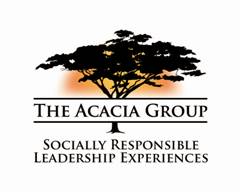Asserting Leadership, Not Authority - CSR and the Art of Balance
Can You Have too Much Corporate in CSR?
May 14, 2010 2:15 PM ET
The Acacia Group - Socially Responsible Leadership
The title of this blog is borrowed from an article from the Stanford Business Review written in 2004. The article “Leading Boldly” describes how in the early part of this decade three powerful foundations that had committed over $12 million to a city school district over the previous five years – withheld their grants due to the poor performance of the board and the “total dysfunction in the system”. This decision by the foundations led to an investigative inquiry into the district’s operations and a subsequent improvement in performance led to the foundation’s funds being reinstated in the following year.
Corporate Social Responsibility or CSR continues to evolve and adapt and increasingly organizations are using CSR as a corporate differentiator in a competitive manner. Witness Coke’s “Live Positively” campaign versus Pespi’s “Refresh” Numerous discussions have occurred as to the depth of legitimacy of CSR with arguments speculating on whether or not it is merely repackaged public relations. But as corporations become more sophisticated in their efforts and in the reporting of their efforts, it seems as it is here to stay, and with this, the desire to align with established causes and NGO’s will grow also. So the question is this: With the new level of complexity and the preponderance of programs that are being announced is it now, or will it be acceptable in the future for corporations to not just support social programs, but to influence and to withhold support to NGO’s until they get their desired outcome? Corporate involvement in social or environmental programs follows a continuum from check writing with no strings attached to full on strategic engagement (e.g. the very positive relationship of Timberland, led by Jeff Schwartz and City Year Youth Corps). Taking this to the next level and moving to the role of key stakeholder and major funder of an NGO, a corporation has the potential to shift the relationship landscape from one of strategic benevolence to that of a quasi government body. The difference of course is that we tend to favor democratically elected officials to provide oversight and regulation to social, health, educational and environmental programs. If the rise of CSR continues and there are opportunities for corporations to engage in social engineering according to a preconceived template are we risking too much? Could this even happen? The decision by the various funders in the example above was criticized by some and applauded by others. These actions served as an impetus for the district and the City to clean up their activities – without corporate help. In today’s CSR climate, as the dependencies between NGO’s and corporations grow more complex and the contribution of personnel, intellectual capital and finances become increasingly intertwined – it would seem wise that standards of practice be made clear and perhaps more importantly that any alliances between NGO’s and corporations are well contemplated, and explicitly lay out terms of engagement, expectations, and responsibilities. CSR is a very good thing as long as the governance and intent of the respective programs remains intact. How do we ensure that social programs do not become dominated by private (corporate) interests? Are you aware of programs where an NGO has been censured for lack of adherence to a corporate standard? If so, is that a good thing? ACACIA6789
